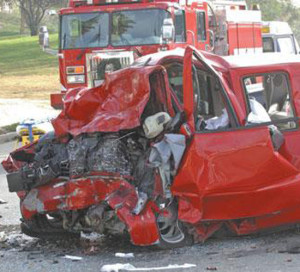Car Accidents & Insurance
On March 15, 2013, Leon County Circuit Court Judge Terry Lewis entered a temporary injunction finding that Florida’s new Personal Injury Protection (“PIP”) law is likely to be found unconstitutional. Judge Lewis cited a possible violation of Art I, Section 21 of the Florida Constitution, which guarantees citizens’ rights to access to the courts. The temporary injunction was subsequently stayed after an appeal was filed by the Office of Insurance Regulation. However, on April 17, 2013, Judge Lewis vacated the stay of the injunction, meaning that until an appellate court overrules Judge Lewis temporary injunction, certain provisions of the 2012 PIP law are no longer the law in Florida.
This ruling has enormous implications because if the Judge Lewis’ decision is upheld by the appellate courts, two of the key PIP reforms passed during the 2012 Florida Legislative Session will be voided. This would have the effect of returning to the pre-2012 PIP law, which critics have argued was a hotbed for insurance fraud. Some of the key provisions in the 2012 PIP law which are no longer enforceable include: (1) the exclusion of acupuncturists, chiropractors, and massage therapists from receiving payments from an injured party’s PIP insurer; and (2) the $2,500 limit for medical benefits for non-emergency conditions.
Florida’s PIP law was originally passed in 1971 as tort reform with the underlying premise being that Florida citizens give up their right to sue for non-economic damages (e.g., pain and suffering) in exchange for prompt access to medical services without regards to who was the at-fault driver in an auto accident. This was upheld by the Florida Supreme Court as reasonable alternative to the tort system. Judge Lewis ruled that the changes made by the new PIP law meant that the PIP system was no longer a reasonable alternative to a pure common law tort system and therefore likely to be found unconstitutional.
By Hastings S.C. Read, Esquire


